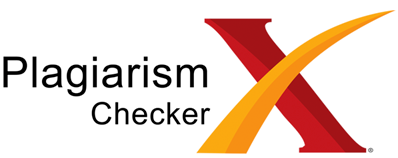Students’ Achievement in Speaking for Professional Context and Their Self Efficacy
DOI:
https://doi.org/10.30599/channing.v2i2.269Keywords:
speaking for professional context, achievement, self efficacyAbstract
This research aimed to find out whether or not there is a significant correlation between Students' Achievement in Speaking for Professional Context and their self-efficacy of English Education Research Program at STKIP-PGRI Lubuklinggau in the academic year 2016/2017. The researcher investigated this research through the descriptive correlation method. The data were analyzed by using Person Product Moment formula. Based on the result of data analyzed, it was found out that r-table was 0.288 and r-obtained was 0.546. Therefore, alternative hypothesis (Ha) was accepted and the null hypothesis (Ho) was rejected. It meant that there was a positive correlation between Students' Achievement in Speaking for Professional Context and their self-efficacy. However, the strength of correlation level was considered insufficient classification. The conclusion showed that the students' self-efficacy had influenced students' speaking achievement.
Downloads
References
Bandura, A. (1994). Self Efficacy. In V.S Ramachaudran (Ed.), Encyclopedia of Human Behavior, 4, 71-81. New York: Academic Press.
Hatch, E., & H. Farhady. (1982). Research Design and Statistics for Applied Linguistics. Cambridge: Newbury House Publisher.
Idrus, H. (2011). Oral Communication Ability in English: An Essential Skill for Engineering Graduates. Asia Pacific Journal of Educators and Education, 26(1), 107-123.
Kitao, K.S. (1996). Testing Communicative Competence. The Internet TESL Journal, 11(5). Retrieved from: http://iteslj.org/Article/Kitao-Testing.html.
Pajares, F. (1996). Self Efficacy Beliefs in Academic Settings.Review of Educational Research, 66, 543-578.
Rusmaini, (2010). Ilmu Pendidikan. Edisi Revisi. Palembang: CV. Grafika Telindo Press.
Stangor, C. (2011). Research Methods for the Behavioral Sciences. United States: Wadsworth.
Sugiyono. (2011). Metode Penelitian Kuantitatif Kualitatif dan R&D. Bandung: Alfabeta.
Zimmerman, B. J. (2000). Self Efficacy: An Essential Motive to Learn. Contemporary Educational Psychology, 25, 82-91.











